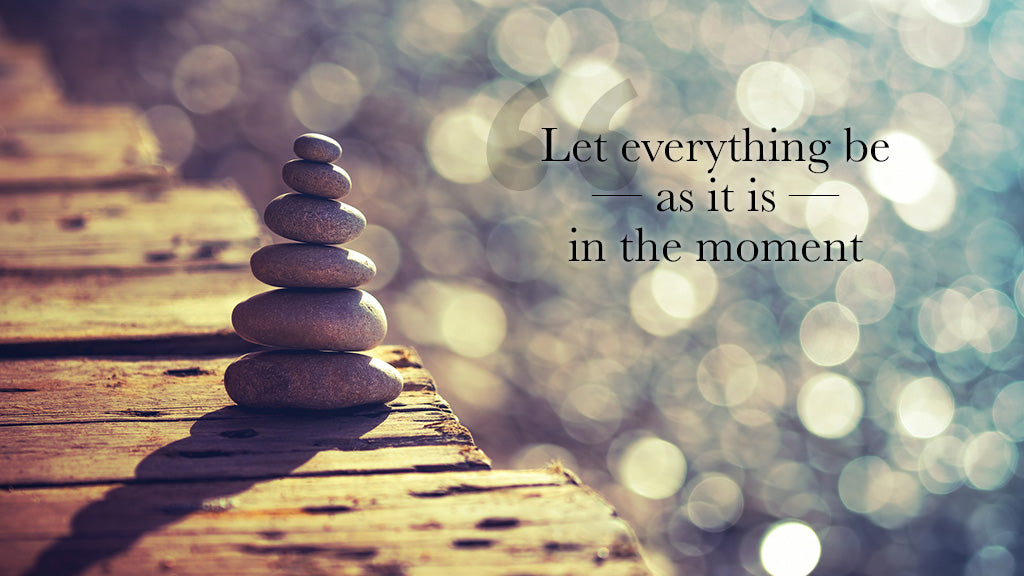Mindfulness and Cannabis: Enhance Your Day
We live in strange times — we’re hostages, handcuffed to our smartphones by our unquenchable thirst for social media attention and an unhealthy fixation with outrage culture. We’re afflicted with terminal FOMO while compulsively doom-scrolling for the next dopamine hit. Yet, we wonder why our mental well-being is suffering; the answer lies in how we live our lives.
We are overstressed and desperately searching for sustainable ways to cope. But it doesn’t have to be like that. That doesn’t have to be your experience. That doesn’t have to be your life. You can end your hostage crisis. How? Mindfulness and cannabis — you can free your mind from the prison of modern mayhem and find solace in mindfulness based therapy.
Practicing mindfulness allows you to observe your thoughts and feelings without judgment and gain a heightened self-awareness. Cannabis is an excellent tool for helping you to cultivate mindfulness in your daily life; it can help you to relax, declutter your mind, and better connect with yourself and those around you. So let’s dive into it a little more.
What is Mindfulness?
Mindfulness defies easy explanation. It resists the human urge to make it small enough to fit in a tidy box with a simple label understood by all. The reality is that mindfulness must be practiced. It’s better felt than understood.
Nevertheless, here’s a trail guide should you choose to walk the path. It’s not about emptying the mind or suppressing thoughts. Mindfulness lets everything be — as it is — in the moment. Thoughts, feelings, emotions, and sensations arise. Mindfulness observes them without attachment or identification. You are not your thoughts. Let them pass without judgment like a cloud in the sky.

Whatever is happening, mindfulness lets the experience unfold, good or bad, with equanimity. It understands that the only truth is change and embraces it with a light heart and curiosity, regardless of its nature. The late Baba Ram Das may have come closest to that elusive explanation of mindfulness when he said, simply:
Be here now.
Simple enough, but not easy.
The Benefits of Mindfulness
While difficult to fully explain, the benefits of mindfulness are real and verifiable by scientific evidence. Studies have shown that mindfulness can increase cognitive functioning, reduce stress, improve physical health, decrease anxiety and depression, and even help with addiction recovery. So, let’s break it down:
-
Stress Reduction: Accepting the present moment without judgment improves the ability to respond to stress calmly and resiliently.
-
Improved mental health: Meditation may help manage anxiety and depression. It enhances self-awareness, emotional regulation, and self-compassion, improving overall mental well-being.
-
Enhanced emotional resilience: Mindfulness increases emotional resilience and enables people to navigate challenging emotions. When people cultivate acceptance and non-reactivity, they develop healthier relationships with their feelings and respond to them in a more balanced way.
-
Increased self-awareness: Mindfulness fosters self-awareness. When people can observe their thoughts and feelings without judgment, they gain insight into their thinking and behavior patterns. This empowers them to make conscious choices and positive changes in their lives.
-
Improved focus and concentration: Mindfulness exercises such as focused attention on breathing can enhance concentration and focus. Regular mindfulness practice strengthens the brain's attention networks, improving the ability to sustain attention without distraction.
-
Other health benefits: Mindfulness reduces blood pressure, improves sleep quality, and enhances immune system function.
With benefits like this, who doesn’t want to try it?
How Cannabis Can Help Mindfulness
Mindfulness is not something we chase or create. It’s a state of being that we practice accessing and connecting with. One example of mindfulness practice that cultivates access and connection is meditation. There are also plant medicines that humans have used for millennia to alter consciousness and enhance this connection.
Psilocybin, Peyote, San Pedro, Bufo, and Ayahuasca are all psychedelic plant medicines humans use in this way. Although technically not a psychedelic, cannabis is another.
Cannabis May Calm the Mind
We all experience racing thoughts. We multitask. We worry. We regret. We chase our tails. We are everywhere but right here, right now. When you listen to your mind, you realize it’s a circus with no ringmaster.
The elephants have run amok, and they’re chasing the clown car, and you would really like it all to stop so you can practice this whole mindfulness thing…but it won’t, and you feel like a lunatic.
Relax. You got this. First, remember that mindfulness is not about stopping thoughts. It’s about letting everything be. So, let the elephants chase the clown car. It’s all good. They’ll be gone before you know it.

That said, when the mind slows, and your thoughts finally stop racing and park by the beach to watch the sunset, finding your deeper connection to the moment and staying with it can be easier. Consuming cannabis can help mental health by relieving the stress and anxiety that get you all wound up.
Cannabis May Shift Your Perception
In the West, it’s common for people to perceive themselves as a distinct entity separate from everything else. We celebrate the individual. In this dualistic worldview, the self that we identify as “me” is a personality in a body distinct from everything that it perceives in consciousness.
Well, what if that perception is wrong? What if there is no self? What if we are not distinct from everything that appears in consciousness, but we are part of a unified whole that is consciousness?
The best scientific and spiritual minds still debate these deep existential questions. There is no definitive answer. We simply don’t know. That said, science has yet to identify where the self resides in the brain. Nearly every mind function has been mapped to the brain except the self. Maybe we can’t find it because it isn’t there.
Regardless, as a practical matter, when we perceive ourselves as separate from what we perceive, it creates a barrier to connecting with what we perceive. To the extent that this connection is foundational to mindfulness, dualistic thinking impedes mindfulness.
The idea that there is no self may seem radical. But both psychedelics and cannabis use open us to new dimensions of experience that often shift perception in this direction.
When this happens, even the most skeptical individual may open to the more holistic view that the self and separation are an illusion and everything, including the “me” of it all, is part of a unified whole.
What’s the Best Cannabis for Mindfulness?
Cannabis consumption is never one size fits all. Different strains of cannabis affect people differently due to a complex mix of influences that include:
Cannabinoids
Cannabinoids are chemical compounds produced by the cannabis plant. There are over 100 different cannabinoids in weed. THC and CBD are the most prominent and well-researched. CBG and CBN are examples of minor (but essential) cannabinoids.
Terpenes
Terpenes are essential oils produced by the cannabis plant that give weed its unmistakable nose. There are over 150 terpenes in cannabis, including limonene, caryophyllene, and myrcene.
The Entourage Effect
The entourage effect is the theory that cannabinoids and terpenes work in synergy and influence each other. This theory is slowly eroding the old belief that marijuana’s effects were attributable to THC.
The Endocannabinoid System
Every human has an endocannabinoid system (ECS). The ECS helps to maintain balance in bodily processes such as sleep, memory, and mood.
Cannabinoids and terpenes interact with this system to make us feel the effects of medical marijuana, such as relaxation or creativity. The ECS is also like fingerprints. No two are the same.
To summarize, every cultivar and person is different, and when the entourage effect meets the endocannabinoid system, people feel different. That’s how weed works.
Finding the best cannabis strain for mindfulness practice will take some experimentation. Just be patient (and mindful) with the process. Take notes on how different cultivars affect you and identify the cannabinoid and terpene combinations that work best for your practice.
How To Practice Mindfulness With Meditation
Breath meditation is a foundational practice for mindfulness. With breath meditation, you focus on your breath as an anchor for mindfulness. You observe your breath's rhythm and sensations to access present-moment awareness. Follow this step-by-step guide to practicing breath meditation:
-
Find a quiet space: Choose a quiet and comfortable space where you can sit without distractions.
-
Adopt a comfortable posture: Sit in a position that allows you to be alert and relaxed. The preferred posture is to sit cross-legged on a cushion. Keep your spine straight yet relaxed and your body in a comfortable and stable position.
-
Settle in: Take a few moments to settle into your posture. Allow your body to release any tension or tightness. Gently close your eyes.
-
Bring attention to your breath: Notice the natural flow of your breath without controlling or manipulating it. Focus on the sensation of the breath as it enters and leaves your nostrils or the rising and falling of your abdomen.
-
Stay present: As you focus on the breath, thoughts, emotions, and sensations may arise. Acknowledge them without judgment, then gently guide your attention back to the breath. Each time your mind wanders, simply and patiently bring it back to the present moment.
-
Practice regularly: Consistency is key. Start with short sessions, such as 5-10 minutes, and gradually increase the duration as you become more comfortable. Aim for daily practice.
Breathing meditation provides a foundation to access and connect with mindfulness of the present moment. If you’re looking for more information, there’s an App by the neuroscientist Sam Harris called “Waking Up” that is an excellent guide to secular mindfulness meditation session.
The most important thing to remember about any mindfulness practice is that mindfulness doesn’t end when the practice ends. When you rise from your meditation cushion, practice mindfulness throughout the day.
The Buddhists have a wonderful saying that illuminates the point: “When doing the dishes, be doing the dishes.”
-
Stop thinking about how much you don’t want to do the dishes.
-
Stop thinking about what you want to do when you finish the dishes.
-
Stop thinking about how long it will take to finish the dishes.
And remember, you won’t do it perfectly. No one does. That’s why they call it a practice.
Cannabis Helps Free Your Mind
Every moment is a moment to practice mindfulness, and using cannabis can help. If you’d like to free your mind from the soul-sucking vortex of contemporary culture, stop by STIIIZY anytime. You don’t need the red pill or the blue pill (or any other pill). You just need some good weed and a little mindfulness. So order online now!

